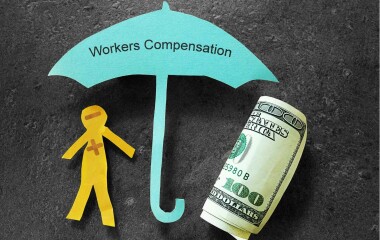Termination of Employment is often a challenging period for many employees. The situation can become even more complicated if incapacity for work (sickness) occurs during the notice period. What does such a situation mean from a legal perspective? Does a period of sickness extend the notice period?
What is the Notice Period?
When your employer delivers a termination notice, the so-called notice period begins to run. This period lasts at least two months and starts from the first calendar day of the month following the delivery of the notice.
The notice period primarily protects you as an employee. It provides you with time to find new employment before your income ceases. The law ensures that you are not suddenly left without means and that you have a chance to transition to new work without undue pressure.
On the other hand, the notice period can also be useful for the employer, as it allows time to find a replacement or arrange the handover of responsibilities. However, in practice, this period is often unpleasant for both parties. You know you are leaving the company, and the employer no longer counts on you in the future. This creates a special transitional situation that can often feel insincere and artificial.
Entitlement to Sickness Benefits During the Notice Period
If you fall ill during the notice period, you are entitled to sickness benefits just as you would be during any other period of employment. For the first 14 calendar days, you receive wage compensation from your employer. From the 15th day onward, sickness benefits are paid by the state through the social security administration.
You do not need to worry that the termination notice would deprive you of these benefits. During the entire notice period, you remain covered by health insurance, and your employer continues to pay social security contributions on your behalf. This means the same rules apply to you as to any other employee.
Is the Notice Period Adjusted During Temporary Incapacity for Work?
Imagine you have received a termination notice and fall ill during the notice period. In such a case, the notice period may be suspended, and your employment relationship will end later than originally planned.
If you are temporarily incapacitated for work at the time your notice period would normally expire, the notice period is suspended. It resumes after your incapacity ends and continues from where it was interrupted.
End of Notice Period During Illness
For example, suppose you have a two-month notice period scheduled to end on June 30. However, you become ill on June 27, leaving three days remaining on the notice period. In this case, the termination does not take effect on June 30 but only after your recovery and the completion of those remaining three days. If you recover on July 4, your employment relationship ends on July 7.
End of Notice Period After Illness
A different situation occurs if your incapacity ends before the notice period expires. For instance, if you become ill on June 20 for one week, and your notice period ends on June 30, the employment relationship terminates on the original date. Short-term illness in such cases does not affect the notice period.
If you wish for your employment to end on the original date despite being ill at that time, you can simply inform your employer. This can be done in writing, verbally, or even by silence—such as not responding and thus implicitly agreeing to the termination date. The choice is yours.
Illness After the Notice Period Has Expired
Another possibility is that you fall ill after the notice period has ended and your employment relationship has terminated. Even then, you may be entitled to sickness benefits. If you become ill within seven calendar days following the end of your employment, a so-called protective period applies. This covers you and allows you to claim sickness benefits even after the employment relationship has ended, provided you were covered by sickness insurance during your employment.
In all these cases, the employer no longer plays any role—they do not pay wage compensation or other benefits. The state, through the social security administration, pays the benefits directly. You may receive sickness benefits for up to 380 calendar days from the start of temporary incapacity for work, even if your employment ends during this period. Extensions are possible only in exceptional and medically justified cases.
Employee Rights
This article has focused on how temporary incapacity for work affects the course and duration of the notice period. We have explained when the notice period is suspended, when the employment relationship may end despite illness, and how termination impacts entitlement to sickness benefits. Understanding these situations can significantly enhance your security and financial stability.
Contact Právo zaměstnance
📞 Phone: +420 773 014 007
📧 Email: info@pravozamestnance.cz
🏢 Via contact form
Follow us on social media: Instagram, Facebook, LinkedIn
We protect and enforce employee rights. We strive to improve working conditions in the Czech Republic and support you in resolving labor law issues.





